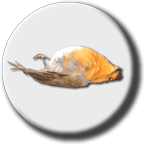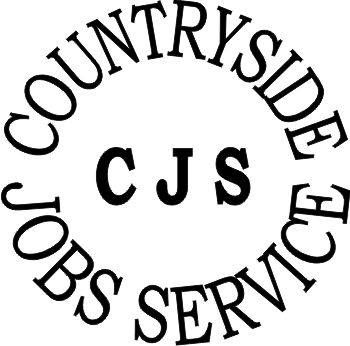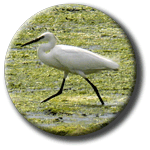Naturenet: Wild Birds and the Law
Wild Birds
and the law
Mostly from The Wildlife and Countryside Act 1981, Part 1
The definition of a 'wild bird' in Section 27 of the Wildlife and Countryside
Act 1981 changed in 2004. A new Statutory Instrument (SI 2004 No. 1487) which
came into force on 14 July 2004 means that a 'wild bird' as defined by the
Act is now any species which is ordinarily resident in or is a visitor to
'the European Territory of any Member State' (of the EU). Previously, 'wild
bird' only referred to birds which occurred in Great Britain. This brings
the WCA in line with the EC Birds Directive and makes it illegal to be in
possession in the UK of any eggs or birds of any species taken from the wild
in another Member State.
Poultry or Game birds (see lists below) however are not included in the Wildlife
and Countryside Act. A bird is only classed as bred in captivity if both parents
were in lawful captivity when the egg was laid. Game is covered by the Game
Acts which fully protect them during the close season.
Game
birds are pheasant, ptarmigan, partridge, grouse, moor game, black or heath
game. Poultry are domestic fowl, geese, ducks, guinea fowl, pigeons, quail
and turkey. Shooting seasons .
.
All birds, their nests and eggs are protected by law and it is thus an offence,
with certain exceptions (see below) intentionally to:
- Kill, injure or take any wild bird.
- Take, damage or destroy the nest of any wild bird while
it is in use or being built. See time
for cutting hedges
 .
.
- Take or destroy the egg of any wild bird.
- Have in one's possession or control any wild bird (dead or alive) or any
part of a wild bird which has been taken in contravention of the Act or the
Protection of Birds Act 1954.
- Have in one's possession or control any egg or part of an egg which has
been taken in contravention to the Act. This includes items taken or killed
before the passing of the Act.
- Have in one's possession or control any live bird of prey of any species
in the world (with the exception of vultures and condors) unless it is registered
and ringed in.
- Have in one's possession or control any bird of a species occurring on
Schedule 4
 of the Act unless registered (and in some cases ringed) in accordance
with the Secretary of State's regulations.
of the Act unless registered (and in some cases ringed) in accordance
with the Secretary of State's regulations.
- Disturb any wild bird listed on Schedule
1
 while it is nest building, or
at a nest containing eggs or young, or disturb the dependent young of such
a bird.
while it is nest building, or
at a nest containing eggs or young, or disturb the dependent young of such
a bird.
Unless appropriately licensed it is an offence to sell, offer for sale, possess
or transport for sale or exchange:
- Any live bird unless listed on Schedule
3
 , Part I and then only if aviary
bred and close ringed with an approved ring as defined by the Secretary of
State's regulations.
, Part I and then only if aviary
bred and close ringed with an approved ring as defined by the Secretary of
State's regulations.
- The egg of any wild bird (whether or not taken in contravention of the
Act).
 Unless appropriately licensed it is an offence to sell, offer, possess or transport
for sale or hire any dead wild birds (or skin or part of such a bird) other
than a bird on Schedule
3
Unless appropriately licensed it is an offence to sell, offer, possess or transport
for sale or hire any dead wild birds (or skin or part of such a bird) other
than a bird on Schedule
3 , Part II or lll unless the vendor has been registered
and the bird marked in accordance with regulations laid down by the Secretary
of State.
, Part II or lll unless the vendor has been registered
and the bird marked in accordance with regulations laid down by the Secretary
of State.
Birds listed on Schedule
3 , Part II may be sold dead at all times, those on
Schedule 3
, Part II may be sold dead at all times, those on
Schedule 3 , Part III may only be sold dead from 1 September until 28 February.
, Part III may only be sold dead from 1 September until 28 February.
Game birds may only be sold dead during the open season and for a period of
up to 10 days immediately after the end of that season.
It is an offence to show at any competition, or in premises in which a competition
is being held, any live wild birds unless listed on Schedule
3 , Part I and
ringed in accordance with the Secretary of State's regulations.
, Part I and
ringed in accordance with the Secretary of State's regulations.
A number of methods of killing, injuring or taking birds are prohibited. These
include gins, springs, traps leg pole traps), snares, nets, bird lime, electrical
scaring devices and poisonous or stupefying substances; bows or crossbows,
explosives (other than firearm ammunition), any gas or smoke, chemical wetting
agent, artificial light, mirror or dazzling device, device for illuminating
target or sighting device for night shooting, automatic or semi-automatic
weapon (unless it is incapable of holding more than 2 rounds in the magazine),
or shotgun with an internal diameter at muzzle more than 1 3/4 inches.
The use of sound recordings and decoys of live birds tethered, blinded or
maimed is illegal. It is also an offence to cause or permit such methods to
be used. Larsen traps (in which a magpie is kept in a cage) are legal so long
as the captive magpie is properly looked after and the traps are used in accordance with the general licence.
It is an offence to use any mechanically propelled vehicle - including boats
- in immediate pursuit of a wild bird to kill or take it.
It is an offence for any person to organise or participate in any event where
captive birds of any sort are liberated to be shot immediately after liberation,
or for a landowner or occupier to permit use of land for such an event.
In addition to the registration requirements for birds of prey and certain
other Schedule 1 species (see Basic Protection), it is illegal to keep any
bird (excluding poultry) in a cage or other receptacle which is not of sufficient
size to permit the bird to stretch its wings freely in all directions. Exceptions
to this are if the bird is undergoing veterinary treatment, is in the course
of conveyance or is being exhibited: in the latter case the time the bird
is so confined should not exceed an aggregate of 72 hours.
It is an offence to attempt to commit any offence or have in one's possession
anything capable of being used to commit an offence.
species (see Basic Protection), it is illegal to keep any
bird (excluding poultry) in a cage or other receptacle which is not of sufficient
size to permit the bird to stretch its wings freely in all directions. Exceptions
to this are if the bird is undergoing veterinary treatment, is in the course
of conveyance or is being exhibited: in the latter case the time the bird
is so confined should not exceed an aggregate of 72 hours.
It is an offence to attempt to commit any offence or have in one's possession
anything capable of being used to commit an offence.
The most notable exceptions to the above provisions are:
- There is no such thing in law as a 'pest species', but an authorised person
(e.g. a landowner or occupier) may kill or take species which are listed
on a general licence and destroy or take the nest or eggs of such a bird,
for specified purposes only. This is permissible under the terms of general
licenses issued by government departments. See Schedule
2
 for more details
of this and to see the current licences.
for more details
of this and to see the current licences.
- A person charged with killing or attempting to kill a wild bird, other
than one included on Schedule
1
 , shall not be guilty of an offence if he
can show his action was necessary for the purpose of preserving public health
or air safety, preventing spread of disease or preventing serious damage
to livestock, foodstuffs for livestock, crops, vegetables, fruit, growing
timber or fisheries (see licenses).
, shall not be guilty of an offence if he
can show his action was necessary for the purpose of preserving public health
or air safety, preventing spread of disease or preventing serious damage
to livestock, foodstuffs for livestock, crops, vegetables, fruit, growing
timber or fisheries (see licenses).
- A person may take or kill (or injure in attempting to kill), a bird listed
on Schedule 2
 , Part I outside the close season.
, Part I outside the close season.
- Anyone may remove and destroy addled eggs but they must not be kept or
sold.
- Authorised persons may take wild mallards' eggs for breeding, but the young
birds must be released into the wild by 31 July. Wild mallard eggs and progeny
cannot be sold. Wild eggs must not be taken later than 31 March in England
and Wales, or 10 April in Scotland.
- Anybody can use nets to take wild duck in a duck decoy which was in use
prior to 1954.
- Anybody can use a cage or net to take any game bird for breeding, but it
remains unlawful to net any bird in flight or on the ground with a net not
propelled by hand. An obvious example of this is bird-ringing for scientific
purposes, which almost always requires the netting of birds in flight. This
activity can therefore only be undertaken by a licensed person.
- A person may take a wild bird if he can satisfy the court the bird had
been injured other than by his own hand and that his sole purpose was to
tend it and then release it when no longer disabled; or he may kill it if
he can prove it was so seriously disabled as to be beyond recovery. Sick
and injured birds listed on Schedule
4
 should be registered with the Department
of the Environment or passed to an approved keeper.
should be registered with the Department
of the Environment or passed to an approved keeper.
Under Section 1(3) of the Act, egg collectors may be required to show that
any eggs in their possession were lawfully obtained. This means that they
must either have been obtained under license, or form part of a collection
which was assembled prior to 1954.
Licenses may be issued by government departments to kill or take birds and/or
eggs for the following purposes:
- Scientific or educational.
- Ringing or marking.
- Conserving wild birds.
- Protecting any collection of wild birds.
- Falconry or aviculture.
- Taxidermy.
- Preserving public health or air safety.
- Preventing serious damage to livestock, foodstuffs for livestock, crops,
vegetables, fruit, growing timber or fisheries.
- Killing a gannet for food on the island of Sula Sgeir.
- Taking a gull's egg for food.
- Taking a lapwing's egg for food before 15 April.
Licenses may also be granted for the sale of live birds (except those listed
on Schedule 3 , Part I) and the sale of dead birds or their parts; for scientific
examination and photography of a Schedule
1
, Part I) and the sale of dead birds or their parts; for scientific
examination and photography of a Schedule
1 species at its nest and for the
public exhibition or competition of birds not listed on Schedule
3
species at its nest and for the
public exhibition or competition of birds not listed on Schedule
3 , Part I.
, Part I.
Falconers can obtain a quarry license to take wild birds
with birds of prey, for example taking a skylark with a merlin. This
is not necessary to take game birds, but a game license must be obtained from
a post office. Schedule
2 birds may also be taken without a quarry or game
license under certain circumstances - under a general license when
causing serious damage to agriculture or for the purpose of conserving wild
birds.
birds may also be taken without a quarry or game
license under certain circumstances - under a general license when
causing serious damage to agriculture or for the purpose of conserving wild
birds.
The maximum fine that can be imposed in respect of
a single bird, nest or egg receiving ordinary protection is £1,000. For offences involving a Schedule
1 species or an illegal method of killing (e.g. poisoning) the maximum is £5,000.
In recent years these fines have been rarely applied, but on a few occasions
there have been very heavy fines or even imprisonment applied for offences
under this Act, in particular for egg-collecting which has been very proactively
prosecuted.
species or an illegal method of killing (e.g. poisoning) the maximum is £5,000.
In recent years these fines have been rarely applied, but on a few occasions
there have been very heavy fines or even imprisonment applied for offences
under this Act, in particular for egg-collecting which has been very proactively
prosecuted.
Most of the text of this page is adapted from a leaflet
of the same title published by the RSPB.
Some information is also from "Law of the
Countryside" by Charlie Parkes.


 Unless appropriately licensed it is an offence to sell, offer, possess or transport
for sale or hire any dead wild birds (or skin or part of such a bird) other
than a bird on Schedule
3
Unless appropriately licensed it is an offence to sell, offer, possess or transport
for sale or hire any dead wild birds (or skin or part of such a bird) other
than a bird on Schedule
3